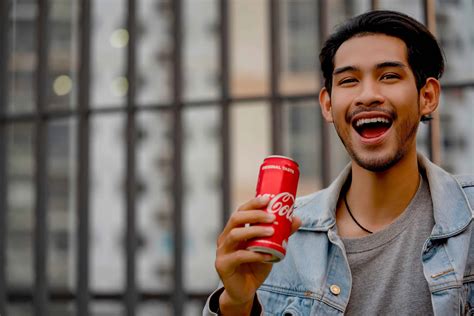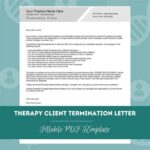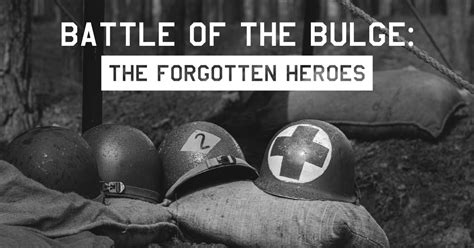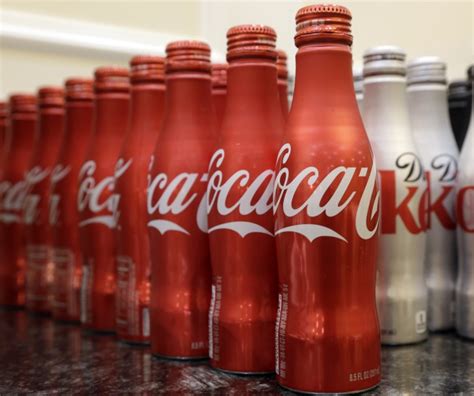
Coca-Cola is facing a sales downturn following a viral video alleging unsanitary conditions at a bottling plant in Northern Ireland, prompting the beverage giant to address consumer concerns and implement recovery strategies.
Coca-Cola Europacific Partners (CCEP), the bottler responsible for producing and distributing Coca-Cola products in Northern Ireland, is actively investigating the video that surfaced on social media, reportedly showing dirty cans on a production line. The company maintains stringent quality control measures and is working to reassure consumers about the safety and hygiene of its products. The controversy has erupted at a sensitive time, with the company already navigating challenging economic conditions and shifting consumer preferences towards healthier alternatives.
Viral Video Sparks Consumer Outcry
The viral video, which rapidly spread across various social media platforms, depicted cans moving along a production line with visible dirt and debris. While the exact origin and authenticity of the video remain under investigation, the footage triggered immediate and widespread concern among consumers, leading to calls for boycotts and expressions of distrust in the Coca-Cola brand.
“We are aware of the video and are taking this matter extremely seriously,” a spokesperson for Coca-Cola Europacific Partners stated. “We adhere to the highest quality and hygiene standards, and we are conducting a thorough investigation to determine the cause of this issue and implement corrective actions.”
The impact of the video was amplified by the speed and reach of social media, where negative sentiments can quickly escalate and damage brand reputation. Consumers expressed their disappointment and questioned the company’s commitment to maintaining sanitary production processes. Many shared the video with their networks, urging others to reconsider purchasing Coca-Cola products.
Coca-Cola’s Response and Damage Control
In response to the growing crisis, Coca-Cola Europacific Partners has launched a comprehensive damage control campaign aimed at addressing consumer concerns and restoring trust in the brand. The company has issued public statements emphasizing its commitment to quality and hygiene, and it has provided updates on the ongoing investigation.
CCEP’s spokesperson reiterated that the company follows strict protocols to ensure product safety, mentioning regular inspections, cleaning schedules, and quality checks. “We have robust procedures in place to prevent any contamination of our products,” the spokesperson stated. “These procedures include regular cleaning and sanitization of equipment, as well as thorough quality checks at every stage of the production process.”
Coca-Cola Europacific Partners has also invited health inspectors and regulatory authorities to conduct independent audits of its bottling plant in Northern Ireland to demonstrate its commitment to transparency and accountability. The company aims to publicly release the findings of these audits to reassure consumers that its production processes meet the highest standards of hygiene and safety.
Furthermore, Coca-Cola Europacific Partners is engaging with consumers directly through social media, addressing their concerns and providing factual information about its quality control measures. The company is also working with influencers and brand ambassadors to share positive messages about Coca-Cola’s commitment to quality and safety.
Financial Implications and Market Impact
The viral video and the ensuing consumer backlash have had a tangible impact on Coca-Cola’s sales and market performance. While the company has not yet released specific financial figures related to the incident, analysts estimate that the negative publicity could lead to a significant decline in sales in the short term, particularly in Northern Ireland and other regions where the video has gained traction.
The decline in sales is attributed to several factors, including:
- Consumer Boycotts: Many consumers have vowed to boycott Coca-Cola products in response to the video, opting for alternative beverages instead.
- Retailer Hesitancy: Some retailers may be hesitant to stock Coca-Cola products due to concerns about consumer demand and potential negative publicity.
- Brand Damage: The negative publicity surrounding the video has tarnished Coca-Cola’s brand image, making it more difficult to attract and retain customers.
Coca-Cola’s stock price has also been affected by the controversy. The company’s shares experienced a slight dip following the release of the viral video, reflecting investor concerns about the potential financial impact of the incident.
Challenges in the Beverage Industry
The Coca-Cola incident highlights the challenges that beverage companies face in today’s digital age. The rapid spread of information through social media can quickly amplify negative news and damage brand reputation, making it essential for companies to have robust crisis management plans in place.
In addition to the challenges posed by social media, beverage companies are also grappling with shifting consumer preferences towards healthier alternatives. Consumers are increasingly concerned about the sugar content and artificial ingredients in traditional soft drinks, leading to a decline in sales of these products.
To address these challenges, Coca-Cola and other beverage companies are diversifying their product portfolios to include healthier options, such as low-sugar and zero-calorie beverages, as well as bottled water, juices, and teas. They are also investing in marketing campaigns that promote healthy lifestyles and responsible consumption.
Coca-Cola’s Recovery Strategies
To mitigate the damage caused by the viral video and restore consumer confidence, Coca-Cola Europacific Partners is implementing a range of recovery strategies. These strategies include:
- Enhanced Quality Control Measures: The company is implementing additional quality control measures at its bottling plant in Northern Ireland to prevent future incidents. These measures include more frequent inspections, enhanced cleaning procedures, and improved training for employees.
- Transparency and Communication: Coca-Cola Europacific Partners is committed to transparency and open communication with consumers. The company is providing regular updates on its investigation and is addressing consumer concerns through social media and other channels.
- Marketing and Promotion: Coca-Cola Europacific Partners is launching marketing and promotional campaigns to highlight the company’s commitment to quality and safety. These campaigns will emphasize the rigorous quality control measures that are in place at Coca-Cola’s bottling plants.
- Community Engagement: Coca-Cola Europacific Partners is engaging with the local community in Northern Ireland to demonstrate its commitment to the region. The company is supporting local charities and organizations, and it is working to create jobs and economic opportunities.
By implementing these recovery strategies, Coca-Cola Europacific Partners aims to restore consumer confidence, mitigate the financial impact of the viral video, and strengthen its brand reputation in the long term.
Expert Opinions and Industry Analysis
Industry experts have weighed in on the Coca-Cola controversy, offering insights into the challenges and opportunities facing the company.
“The Coca-Cola incident is a reminder of the power of social media and the importance of maintaining high standards of quality and hygiene,” said Robert Jones, a marketing consultant specializing in the beverage industry. “Companies need to be proactive in monitoring social media and responding quickly to any negative news or complaints.”
“Coca-Cola has a strong brand reputation, but it needs to take swift and decisive action to address consumer concerns and restore trust,” said Sarah Lee, an analyst at a market research firm. “The company’s recovery strategies will be crucial in determining its long-term success.”
The incident also highlights the importance of supply chain management and the need for companies to have robust systems in place to ensure the safety and quality of their products.
Long-Term Implications for Coca-Cola
The Coca-Cola controversy could have long-term implications for the company, depending on how effectively it manages the crisis and restores consumer confidence.
If Coca-Cola is successful in addressing consumer concerns and demonstrating its commitment to quality and safety, it can mitigate the damage to its brand reputation and maintain its position as a leading beverage company. However, if the company fails to address consumer concerns effectively, it could face a long-term decline in sales and market share.
The incident also underscores the importance of innovation and diversification in the beverage industry. As consumer preferences shift towards healthier alternatives, Coca-Cola and other beverage companies need to continue to innovate and develop new products that meet these changing needs.
The Importance of Crisis Management in the Age of Social Media
The Coca-Cola situation serves as a case study on how swiftly a company’s reputation can be impacted in the digital age. Effective crisis management is now more critical than ever. Companies need to be prepared to:
- Monitor Social Media: Constantly track social media channels for mentions of their brand and potential issues.
- Respond Quickly: Develop a plan to respond rapidly and effectively to any negative news or complaints.
- Be Transparent: Communicate openly and honestly with consumers about the issue.
- Take Corrective Action: Implement corrective actions to address the root cause of the problem.
- Rebuild Trust: Take steps to rebuild trust with consumers and restore brand reputation.
Failing to do so can result in significant financial losses, reputational damage, and a long-term decline in consumer loyalty.
Coca-Cola’s Sustainability Efforts
While dealing with the immediate crisis stemming from the viral video, Coca-Cola is also continuing to emphasize its sustainability efforts, as these factors are increasingly important to consumers. These initiatives include:
- Water Stewardship: Coca-Cola has committed to replenishing the water it uses in its beverages and has invested in water conservation projects around the world.
- Packaging Sustainability: The company is working to reduce the environmental impact of its packaging by using more recycled materials and developing innovative packaging solutions.
- Climate Change: Coca-Cola has set targets to reduce its greenhouse gas emissions and is investing in renewable energy sources.
- Community Development: The company supports community development programs around the world, focusing on education, health, and economic empowerment.
These sustainability efforts are an important part of Coca-Cola’s overall strategy and can help to enhance its brand reputation and attract environmentally conscious consumers.
The Broader Context: Food Safety and Consumer Trust
The Coca-Cola incident is not an isolated case. Food safety concerns have become increasingly prevalent in recent years, with numerous incidents of contamination, product recalls, and foodborne illnesses. These incidents have eroded consumer trust in the food industry and have led to increased scrutiny of food safety practices.
To address these concerns, food companies need to:
- Implement Robust Food Safety Systems: Invest in robust food safety systems that are based on internationally recognized standards, such as Hazard Analysis and Critical Control Points (HACCP).
- Train Employees: Provide employees with comprehensive training on food safety practices.
- Conduct Regular Audits: Conduct regular audits of their facilities and processes to ensure compliance with food safety standards.
- Be Transparent with Consumers: Communicate openly and honestly with consumers about food safety issues.
By prioritizing food safety and transparency, food companies can rebuild consumer trust and ensure the long-term sustainability of their businesses.
The Role of Regulatory Agencies
Regulatory agencies play a critical role in ensuring food safety and protecting consumers. These agencies are responsible for:
- Setting Food Safety Standards: Establishing food safety standards and regulations that food companies must comply with.
- Inspecting Food Facilities: Inspecting food facilities to ensure compliance with food safety standards.
- Enforcing Food Safety Laws: Enforcing food safety laws and regulations, including issuing fines and penalties for violations.
- Investigating Foodborne Illness Outbreaks: Investigating foodborne illness outbreaks to identify the source of contamination and prevent future outbreaks.
- Providing Consumer Education: Providing consumer education on food safety practices.
Effective regulatory oversight is essential for maintaining a safe and reliable food supply.
Conclusion: Navigating the Crisis and Building a Stronger Future
The Coca-Cola viral video incident presents a significant challenge for the company, but it also provides an opportunity to learn and grow. By taking swift and decisive action, addressing consumer concerns, and implementing long-term recovery strategies, Coca-Cola can restore consumer confidence, mitigate the financial impact of the incident, and strengthen its brand reputation.
The incident underscores the importance of:
- Proactive Crisis Management: Having a robust crisis management plan in place to respond quickly and effectively to any negative news or complaints.
- Transparency and Communication: Communicating openly and honestly with consumers about the issue.
- Commitment to Quality and Safety: Maintaining high standards of quality and hygiene at all stages of the production process.
- Innovation and Diversification: Developing new products that meet changing consumer preferences.
- Sustainability: Committing to sustainable practices that protect the environment and benefit communities.
By embracing these principles, Coca-Cola can navigate the current crisis and build a stronger, more sustainable future.
Frequently Asked Questions (FAQ)
1. What exactly is the issue with Coca-Cola right now?
Coca-Cola Europacific Partners (CCEP), a bottler for Coca-Cola, is dealing with the fallout from a viral video that purportedly shows unsanitary conditions, specifically dirty cans, on a production line at a bottling plant in Northern Ireland. This video has sparked consumer concern and calls for boycotts.
2. Has Coca-Cola confirmed the video’s authenticity?
While Coca-Cola hasn’t definitively confirmed the video’s authenticity, they have acknowledged being aware of it and are taking the matter “extremely seriously.” They’ve launched a thorough investigation to determine the cause of the issue.
3. What actions has Coca-Cola taken in response to the video?
Coca-Cola Europacific Partners is:
- Conducting a thorough investigation.
- Reiterating their commitment to the highest quality and hygiene standards.
- Inviting independent audits of their bottling plant.
- Engaging with consumers on social media to address concerns.
- Planning marketing campaigns to highlight their quality control measures.
4. Are Coca-Cola products in Northern Ireland safe to drink?
Coca-Cola maintains that they adhere to the highest quality and hygiene standards and have robust procedures in place to prevent any contamination of their products. They emphasize regular cleaning, sanitization, and quality checks. The independent audits are being conducted to further reassure consumers.
5. What could be the long-term consequences for Coca-Cola?
The long-term consequences depend on how effectively Coca-Cola manages the crisis. Potential consequences include:
- Decline in sales, particularly in affected regions.
- Damage to brand reputation.
- Investor concerns and potential stock price fluctuations.
- Increased consumer scrutiny of food safety practices.
However, if Coca-Cola successfully addresses consumer concerns and implements effective recovery strategies, they can mitigate the damage and maintain their market position.
6. What are the key factors that led to this crisis?
The key factors include:
- The Power of Social Media: The rapid spread of the video on social media amplified the negative impact.
- Consumer Trust and Food Safety: Growing consumer awareness of food safety and their increased expectations for hygiene.
- Transparency and Communication: The need for companies to be transparent and responsive when addressing concerns about product quality.
7. What are the enhanced quality control measures being implemented?
While the specific details of the enhanced measures aren’t fully public, the general categories include:
- More frequent inspections of equipment and production lines.
- Enhanced cleaning and sanitization procedures.
- Improved training for employees on hygiene and quality control protocols.
- More rigorous quality checks at every stage of the production process.
8. How is Coca-Cola planning to regain consumer trust?
Coca-Cola is planning to regain consumer trust through:
- Transparency: Openly sharing information about the investigation and corrective actions.
- Communication: Actively engaging with consumers on social media and other channels to address their concerns.
- Independent Audits: Inviting independent authorities to audit their facilities and publicly releasing the findings.
- Marketing and Promotion: Highlighting their commitment to quality and safety through marketing campaigns.
- Community Engagement: Supporting local communities to demonstrate their commitment to the region.
9. What is the role of regulatory agencies in this situation?
Regulatory agencies play a crucial role in:
- Conducting independent inspections of Coca-Cola’s bottling plant.
- Ensuring compliance with food safety standards.
- Enforcing food safety laws and regulations.
- Providing consumer education on food safety practices.
- Potentially investigating the incident and taking enforcement actions if necessary.
10. How does this situation relate to broader trends in the beverage industry?
This situation highlights several broader trends in the beverage industry:
- Increased Consumer Awareness of Food Safety: Consumers are more aware of and concerned about food safety issues.
- The Power of Social Media: Social media can quickly amplify negative news and damage brand reputation.
- Shifting Consumer Preferences: Consumers are increasingly seeking healthier beverage options, putting pressure on traditional soda companies.
- The Importance of Sustainability: Consumers are increasingly concerned about the environmental impact of beverage packaging and production.
- The Need for Transparency and Responsiveness: Companies need to be transparent and responsive to consumer concerns.
11. What evidence supports the allegation of unsanitary conditions?
The primary evidence is the viral video itself. While the authenticity and context of the video are under investigation, the footage purportedly shows dirty cans moving along a production line. The visual evidence in the video is what sparked the initial consumer concern.
12. How does this impact Coca-Cola’s relationship with its bottlers?
This incident puts pressure on Coca-Cola Europacific Partners (CCEP), the bottler, to demonstrate its commitment to quality and safety. Coca-Cola will likely work closely with CCEP to ensure that corrective actions are taken and that the highest standards are maintained. The incident could also lead to increased scrutiny of other bottlers in Coca-Cola’s global network.
13. What are Coca-Cola’s contingency plans if sales continue to decline?
While Coca-Cola hasn’t publicly disclosed specific contingency plans, potential strategies include:
- Increased Marketing and Promotional Efforts: Investing in marketing campaigns to regain consumer confidence and boost sales.
- Price Adjustments: Offering discounts or promotions to stimulate demand.
- Product Innovation: Introducing new products or variations of existing products to attract consumers.
- Supply Chain Optimization: Streamlining their supply chain to reduce costs and improve efficiency.
- Focus on Other Markets: Shifting their focus to markets where sales are stronger.
14. Beyond hygiene, what other quality control measures does Coca-Cola employ?
Beyond hygiene, Coca-Cola likely employs a wide range of quality control measures, including:
- Ingredient Sourcing: Strict standards for sourcing ingredients from reputable suppliers.
- Water Quality: Rigorous testing and treatment of water used in their beverages.
- Manufacturing Processes: Monitoring and controlling all aspects of the manufacturing process, from mixing to bottling.
- Product Testing: Regular testing of finished products to ensure they meet quality standards.
- Packaging Integrity: Ensuring that packaging is intact and prevents contamination.
- Shelf Life Monitoring: Monitoring the shelf life of their products to ensure they remain safe and palatable.
15. Has this happened to Coca-Cola before?
While specific incidents of viral videos showing unsanitary conditions may be unique to this situation, large food and beverage companies have faced product recalls and quality control issues in the past. This highlights the ongoing challenge of maintaining consistent quality and safety across complex global supply chains.
16. What is the financial risk for Coca-Cola resulting from the sales decline?
The financial risk is multi-faceted and hard to quantify exactly. It includes:
- Direct Sales Loss: The immediate loss of revenue from decreased sales in affected regions.
- Long-Term Brand Damage: The potential for a sustained decline in sales due to reputational damage.
- Increased Marketing Costs: The cost of launching marketing campaigns to regain consumer trust.
- Legal Costs: Potential legal costs if consumers file lawsuits related to the incident.
- Stock Price Impact: The negative impact on Coca-Cola’s stock price, which could affect shareholder value.
17. How are employees at the bottling plant being supported during this crisis?
Coca-Cola Europacific Partners will likely be focused on:
- Providing Clear Communication: Keeping employees informed about the situation and the company’s response.
- Offering Training and Support: Providing additional training on hygiene and quality control procedures.
- Addressing Employee Concerns: Responding to employee questions and concerns about job security and the company’s future.
- Maintaining a Safe Working Environment: Ensuring that employees feel safe and supported in their work environment.
- Investing in Employee Morale: Taking steps to boost employee morale and maintain a positive work environment.
18. How does this affect Coca-Cola’s overall brand strategy and marketing?
This incident necessitates a recalibration of Coca-Cola’s brand strategy and marketing efforts. It requires:
- Emphasizing Quality and Safety: Prioritizing messaging that highlights Coca-Cola’s commitment to quality and safety.
- Transparency and Openness: Being transparent and open with consumers about the company’s response to the incident.
- Rebuilding Trust: Focusing on rebuilding trust with consumers through authentic and engaging marketing campaigns.
- Highlighting Sustainability Efforts: Emphasizing Coca-Cola’s sustainability efforts to appeal to environmentally conscious consumers.
- Adapting to Changing Consumer Preferences: Continuing to innovate and develop new products that meet changing consumer preferences.
19. What internal audits are being conducted by Coca-Cola?
The details of the internal audits are proprietary, but likely include:
- Production Line Audits: Thorough inspections of all production lines to identify potential hygiene issues.
- Quality Control Process Audits: Review of all quality control processes to ensure they are effective.
- Employee Training Audits: Assessment of employee training programs to ensure they cover all relevant hygiene and safety protocols.
- Supplier Audits: Audits of suppliers to ensure they meet Coca-Cola’s quality and safety standards.
- Record Keeping Audits: Review of record-keeping practices to ensure accurate and complete documentation.
20. Will Coca-Cola face any regulatory fines or penalties?
Whether Coca-Cola will face regulatory fines or penalties depends on the findings of the independent audits and the regulatory agencies’ investigation. If the audits reveal significant violations of food safety standards, Coca-Cola could face fines, penalties, or other enforcement actions.
21. What is the likelihood of product recalls related to this incident?
The likelihood of product recalls depends on the severity of the contamination and the potential risk to consumers. If the investigation reveals that products were contaminated, Coca-Cola may issue a voluntary recall to remove those products from the market. Regulatory agencies could also order a recall if they deem it necessary to protect public health.
22. How is Coca-Cola addressing concerns of international consumers regarding the video?
Coca-Cola is addressing concerns of international consumers by:
- Releasing Global Statements: Issuing statements that address the issue and reaffirm their commitment to quality and safety worldwide.
- Localizing Communications: Adapting their communications to address the specific concerns of consumers in different regions.
- Engaging with Local Media: Working with local media outlets to provide accurate information about the situation and their response.
- Responding to International Social Media: Monitoring and responding to comments and questions on social media platforms used by international consumers.
- Ensuring Consistent Standards: Emphasizing that they maintain consistent quality and safety standards across all their bottling plants worldwide.
23. What is Coca-Cola’s plan for future crisis mitigation?
Coca-Cola’s plan for future crisis mitigation includes:
- Enhanced Social Media Monitoring: Expanding their social media monitoring capabilities to identify potential issues more quickly.
- Improved Crisis Communication Plan: Updating their crisis communication plan to ensure a rapid and effective response to future incidents.
- Increased Employee Training: Providing more frequent and comprehensive training for employees on crisis management protocols.
- Regular Mock Crisis Drills: Conducting regular mock crisis drills to test their preparedness and identify areas for improvement.
- Strengthened Relationships with Regulatory Agencies: Maintaining strong relationships with regulatory agencies to ensure open communication and collaboration.
24. Is there any indication that the viral video was part of a smear campaign against Coca-Cola?
While it is difficult to definitively determine the intent behind the video’s release, Coca-Cola will likely investigate all possible angles, including the possibility of a smear campaign. They will look for patterns of coordinated activity, suspicious accounts, and any other evidence that suggests the video was released with malicious intent. However, the primary focus is currently on addressing the consumer concerns and ensuring the safety of their products, regardless of the video’s origins.
25. Will Coca-Cola be investing more in automation to mitigate human errors?
While Coca-Cola continually evaluates and implements technological advancements, the decision to invest specifically in more automation as a direct result of this incident will depend on the findings of their investigation. If the investigation reveals that human error contributed to the issue, Coca-Cola may consider increasing automation as one way to reduce the risk of future incidents. Automation can provide more consistent and reliable processes, but it’s important to balance that with the need for human oversight and skilled workers. A comprehensive strategy that combines technology with robust training and quality control measures is likely the most effective approach.









